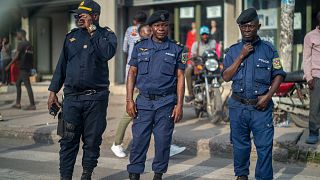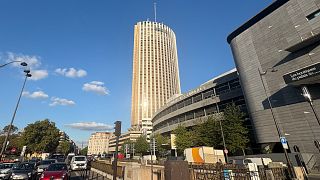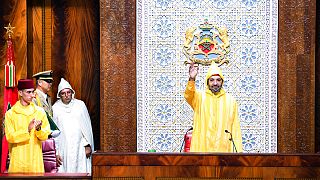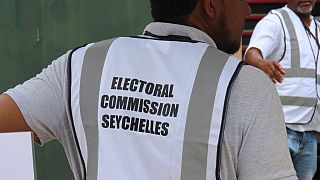M23
Talks between the Democratic Republic of the Congo (DRC) and the Rwandan-backed M23 rebel group are ‘moving in the right direction’, a diplomatic source told AFP as negotiations continue between the two parties in Qatar.
Congolese and M23 negotiators are currently working with Qatari mediators to try to overcome the remaining obstacles, the same diplomatic source told AFP, speaking on condition of anonymity.
Last week, the M23 had called for the resumption of talks to resolve the outstanding issues in the peace deal facilitated by the US and signed in Washington last month between Kinshasa and Kigali.
The treaty is aimed at putting an end to the fighting that has claimed thousands of lives in eastern Congo. But unless M23, the most prominent armed group fighting in the region, agrees to it, the conflict is unlikely to end.
Many Congolese see the pact as an opportunity for the US to acquire minerals needed for much of the world’s technology after their government reached out to Washington for support in fighting the rebels. President Trump has pushed to gain access to such minerals at a time when the United States and China are actively competing for influence in Africa.
Long road ahead
The peace deal is not likely to end the conflict quickly
The Rwanda-backed M23 rebel group is the most prominent armed group in the conflict, and its major advance early this year left bodies on the streets. With 7 million people displaced in Congo, the United Nations has called it “one of the most protracted, complex, serious humanitarian crises on Earth.”
Congo hopes Washington will provide it with the security support needed to fight the rebels and possibly get them to withdraw from the key cities of Goma and Bukavu, and from the entire region where Rwanda is estimated to have up to 4,000 troops. Rwanda has said that it's defending its territorial interests and not supporting M23.
M23 rebels have suggested that the agreement won’t be binding for them. The rebel group hasn't been directly involved in the planned peace deal, although it has been part of other ongoing peace talks.
Corneille Nangaa, leader of Congo River Alliance — known by its French acronym AFC — which includes M23, told the Associated Press in March that direct peace talks with Congo can only be held if the country acknowledges their grievances and that “anything regarding us which are done without us, it’s against us.”
An M23 spokesperson, Oscar Balinda, echoed that to the AP this week.
Nduhungirehe pointed to separate talks happening in Qatar that are meant to get both Congo and the M23 rebels to agree among themselves how they will end the fighting. He also said Rwanda agreed to lift its “defensive measures.” It was not clear if he meant withdrawing the troops that Rwanda has said are defending its territorial interests.
Rwanda also has been accused of exploiting eastern Congo's minerals, used in smartphones, advanced fighter jets and much more. Rwanda has denied any involvement, while analysts say that might make it difficult for Rwanda not to be involved in the region.
The deal is at the heart of the American government’s push to counter China in Africa. For many years, Chinese companies have been a key player in Congo’s minerals sector. Chinese cobalt refineries, which account for a majority of the global supply, rely heavily on Congo.
What the US role looks like in ending the conflict
Congo's foreign minister said the US has proven to be a “reliable partner” during the peace process and on other issues in relations between the two countries.
“So there is no doubt in this moment, if you want, when it comes to the credibility of the US as a partner, be it for a peace process, where we have signed a very important agreement today, or for investment from the US,” Wagner told the AP in an interview Friday evening.
Analysts say the US government’s commitment might depend on how much access it has to the minerals being discussed under separate negotiations between the American and Congolese governments.
The mostly untapped minerals are estimated to be worth as much as $24 trillion by the US Department of Commerce.
Christian Moleka, a political scientist at the Congolese think tank Dypol, called the deal a “major turning point” but said it could “in no way eliminate all the issues of the conflict.”
“The current draft agreement ignores war crimes and justice for victims by imposing a partnership between the victim and the aggressor,” he said. “This seems like a trigger-happy proposition and cannot establish lasting peace without justice and reparation.”
In Congo's North Kivu province, the hardest hit by the fighting, some believe that the peace deal will help resolve the violence but warn justice must still be served for an enduring peace.
“I don't think the Americans should be trusted 100%,” said Hope Muhinuka, an activist from the province. “It is up to us to capitalize on all we have now as an opportunity.”
Aftermath of Rwandan genocide
The conflict can be traced to the aftermath of the 1994 genocide in Rwanda, where Hutu militias killed between 500,000 and 1 million ethnic Tutsi, as well as moderate Hutus and Twa, Indigenous people. When Tutsi-led forces fought back, nearly 2 million Hutus crossed into Congo, fearing reprisals.
Rwandan authorities have accused the Hutus who fled of participating in the genocide and alleged that elements of the Congolese army protected them. They have argued that the militias formed by a small fraction of the Hutus are a threat to Rwanda’s Tutsi population.
Since then, the ongoing conflict in east Congo has killed 6 million people, in attacks, famines and unchecked disease outbreaks stemming from the fighting.











00:59
Congolese government and M23 to hold 6th round of talks
01:51
DRC President Tshisekedi appeals to Kagame to halt M23 violence
01:08
More than 80% of health facilities in eastern Congo are out of medicine, Red Cross says
01:07
Exporters breaching DRC cobalt quotas face permanent ban, warns Tshisekedi
02:33
DRC: Joseph Kabila's death sentence sends shockwaves through Goma
01:45
Seven months after UN resolution, peace in eastern Congo remains elusive